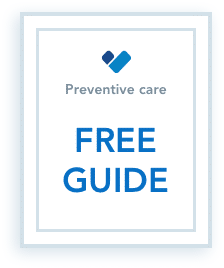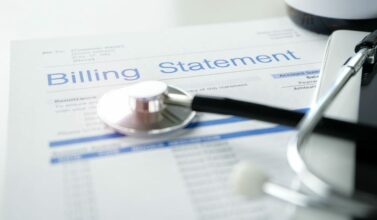Understanding depression – what everyone should know
More than 300 million people around the world suffer from depression, according to the World Health Organization, making it one of the most common mental disorders and the leading cause of disability. Given its prevalence, here are some things everyone should know about depression. Learning this information can help you understand those around you suffering from this condition or even be helpful for you directly.
We created a FREE checklist to use to start a conversation with your healthcare provider. Grab it here and bring it with you on your next doctor visit.
What is depression?
While some cases of depression grow out of periods of grief, depression is more than just being sad. Depression is a mood disorder where you have extended periods of feeling extremely low, to the point that your mood disrupts your ability to enjoy and function in daily life. It impacts your feelings, thoughts, and behaviors and can cause both emotional and physical issues.
In addition to sadness, depression also often brings on feelings of hopelessness, worthlessness, and emptiness. Depression manifests in different ways in different people, but some of the other symptoms of depression include:
- Changes in appetite or sleep habits
- Frequent thoughts of death or suicide
- Trouble thinking clearly, concentrating, or making decisions
- Increased fatigue
- Disinterest in activities once enjoyed
- Increase irritability and anger
- Feelings of guilt
- Loss of motivation
- Slow or purposeless physical movements
- Unexplained physical pains
In addition, nearly half of people with depression have a simultaneous diagnosis of an anxiety disorder.
What are the different types of depression?
There are several different types of depression. The two that are most commonly referred to are major depression and persistent depressive disorder.
Doctors will typically give a diagnosis of major depression if you exhibit several of the symptoms we mentioned previously most of the day, nearly every day, for at least two weeks. Major depression is also called major depressive disorder or clinical depression.
For those with persistent depressive disorder, episodes of major depression can occur along with periods with less severe symptoms. The defining characteristic for persistent depressive disorder is that these symptoms last for at least two years.
Other types of depression include seasonal affective disorder, which is typically triggered by lower levels of sunlight in the fall and winter months, and postpartum depression, which lasts two weeks to a year after childbirth. There’s also psychotic depression, a severe type that includes hallucinations, delusions, or other breaks with reality.
Another mental illness that includes depression but is different is bipolar disorder. People living with bipolar disorder go through cycles of depression and mania, the latter of which causes extreme excitability and high moods.
What causes depression?
Depression does not discriminate. It can happen to anyone at any time in their lives, regardless of race, age, religion, or other background characteristics.
There are some factors that can increase the risk for depression, though the onset of depression can also occur for no apparent reason. Risk factors include:
- Genetics: As with many other physical and mental illnesses, a family history of depression can increase your risk for it.
- Biological differences: Biochemistry can play a role in depression. Having too little or too much of certain brain chemicals can contribute to depression.
- Environmental factors: Exposure to violence, abuse, and other trauma can make you more vulnerable to developing depression.
- Personality characteristics: Those with low self-esteem and pessimism are more prone to depression. Those who are too dependent on others or too critical of themselves are also at increased risk.
- Physical illness: You’re more likely to get depression if you have certain illnesses such as cancer, heart disease, and diabetes.
- Medications: Some medications have side effects that can lead to the development of depression.
Talking with a mental health professional and getting a proper diagnosis is important as the exact treatment plan will depend on what factors led to the depressive disorder. Treatment for depression includes psychotherapy and medication.
What should I do if I think I have depression?
Know that getting better is possible and the majority of people with depression recover fully with effective treatment. The key is to make sure you seek help and to not isolate yourself.
You can use an online screening to get an idea of whether you may be suffering from depression, or call a depression hotline to get help and free and confidential information about depression and available treatments. One option is the national hotline at SAMHSA (Substance Abuse and Mental Health Services Administration): 1-800-662-HELP.
However, only a mental health professional can truly evaluate and diagnose you and help you find the right treatment plan. Mental health services are covered by the Affordable Care Act and include care options such as counseling, psychotherapy, and inpatient services. In addition, depression screening is usually covered as preventive care.
If you are having thoughts of self-harm or suicide, call 911 to get emergency services or connect with the National Suicide Prevention Lifeline to speak with a trained crisis worker. They’re available at 1-800-273-TALK or via online chat.
How can I understand depression in loved ones and help them?
It can be difficult for someone struggling with depression to explain the condition to someone who doesn’t have it. This is especially true at times when they can’t articulate a reason for why they’re feeling depressed. So if you think or know that a loved one has depression, try to learn more about it on your own.
One way is to call a depression hotline like the SAMHSA one at 1-800-662-HELP. These hotlines offer free and confidential information about depression, treatments, and how you can help a loved one who is living with depression. You can also find information helpful for yourself such as support groups for family members caring for individuals living with depression.
In addition to educating yourself, be supportive, listen to your loved one, be patient and positive, and encourage your loved one to seek professional help. And don’t forget to grab the FREE checklist to use on your next visit to your healthcare provider.














Leave a Comment